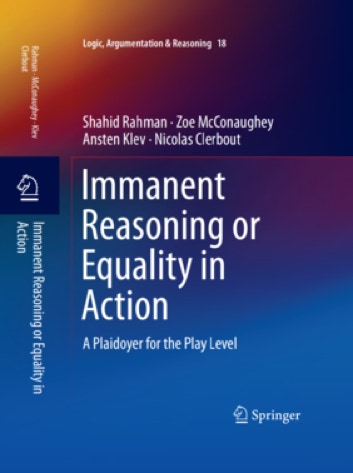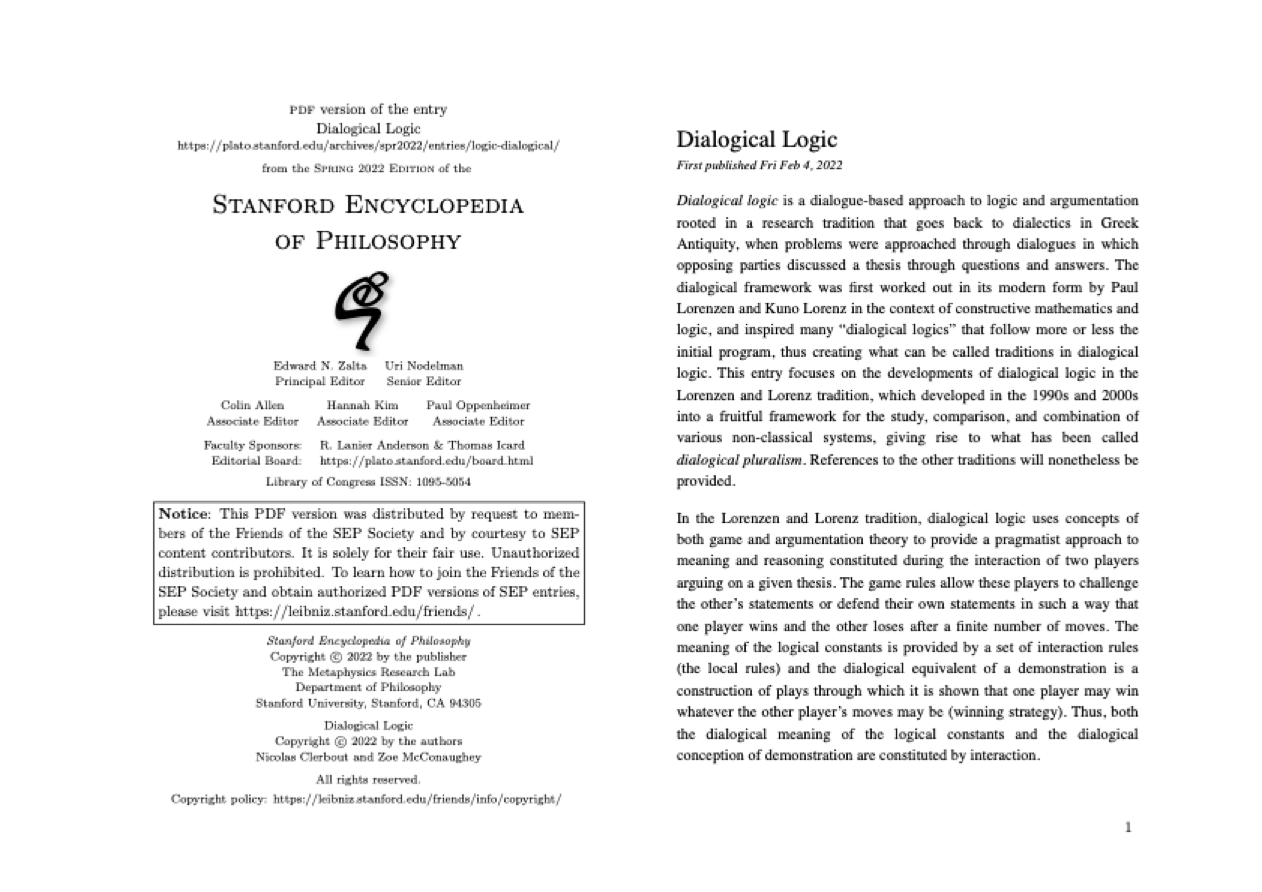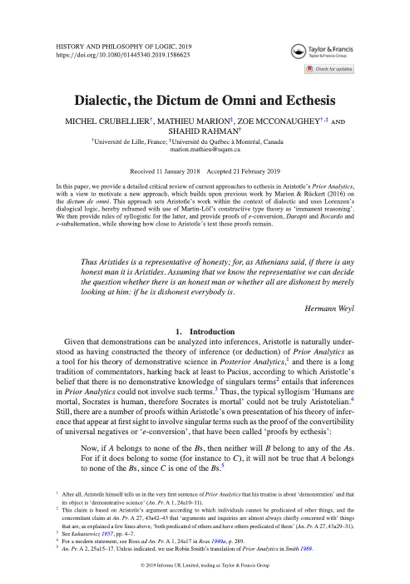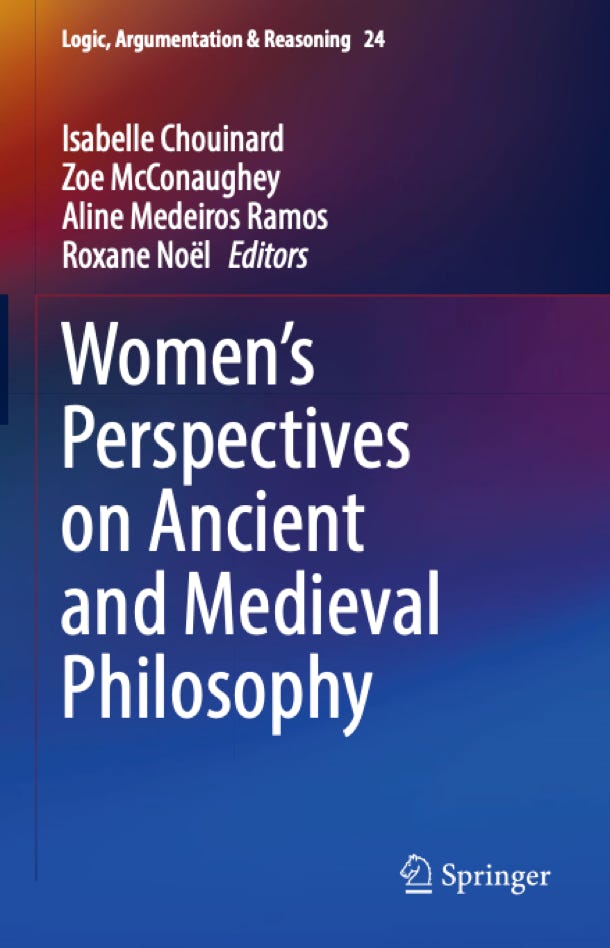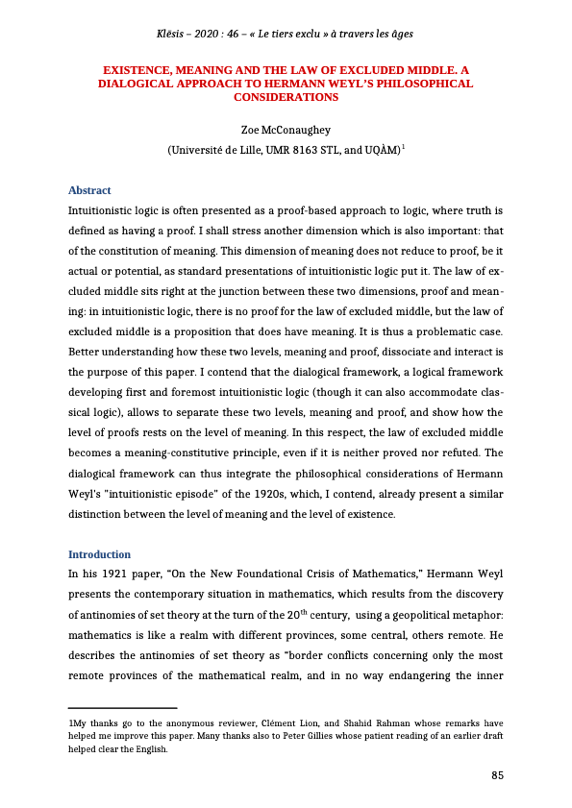
About Zoe McConaughey
My research interests cover both contemporary and ancient formal logics:
- I develop «Dialogical Logic» in the Lorenzen tradition.
- I study Aristotle’s logic, reading in particular his syllogistic with the context of dialectical debates as the historical and cultural background.
